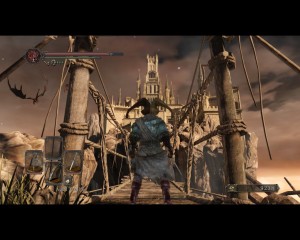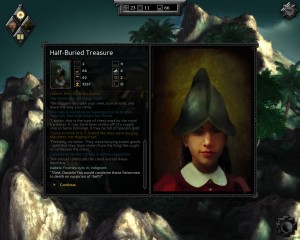Talks on the Video Game Industry becoming more inclusive have gotten bigger over the last few years, and there is one debate that I keep hearing that is starting to get on my nerves. When developers try to combine fantasy with a realistic setting, it brings up a debate on just how historical accurate you can be when it comes to game design being more inclusive. While both sides make convincing arguments, I have to ultimately side with making video games more enjoyable for all.
Fantastical Fiction:
Fantasy is a popular setting for a lot of games: From the world of Baldur’s Gate, to Dark Souls and the recent critically exclaimed The Witcher 3. Many of these titles despite being in a world of magic and monsters try to ground themselves in a realistic time period. A popular setting is the medieval era, as who doesn’t like to swing swords and wear bad-ass armor?
The medieval era may have been known largely for knights, armor, sword fighting etc, but it’s not known as an inclusive time. Most stories dealt with the same demographic that a section of the Game Industry caters to — The 20-30 something straight while male, and everyone else either isn’t mentioned or kept to the sidelines. Before anyone starts commenting, there are no doubt exceptions with some stories or situations.
The debate for today’s post centers on historical accuracy in a fantasy setting, with both sides believing strongly in their view.
The Defense:
Defenders of historical accuracy in games don’t believe that POC (People of Color) or strong women would really have a place during the era that these titles are taking place in. In The Witcher 3, the developers received some flak for not having any POC in the game. Their defense and the one used by their fans was that the game took place in an alternate version of historical Poland, during a time where there weren’t too many POC.

Despite having a basis of realistic medieval weapons, series like Dark Souls are very much built in their own unique worlds
A similar defense is used against people who want more female characters, either as main characters or NPCs in stronger roles.
The defenders say that since women weren’t known at the time for being in positions of power or combat, then it doesn’t make sense to feature women in those roles.
Moving on, the critics feel that you can only take historical accuracy so far in a fantasy setting.
The Criticism:
Critics for this debate cite two points when talking about breaking historical accuracy for inclusivity. The first is that there were examples of strong women and POC throughout history, which they feel is a compelling enough argument. Second, is that historical accuracy and fantasy are contradicting elements: It’s weird to talk about a historical setting while explaining the roles magic, dragons and the undead have in the world.
Ultimately if you want your game to be enjoyed by a greater audience, then you have to make it more inclusive, end of story. Critics feel that the enjoyment of the audience should have greater weight than historical accuracy, especially when talking about a fantasy setting, and that’s where my thoughts fall on this debate as well.
My Position:
The defense of using historical accuracy when talking fantasy or fictitious settings doesn’t work for me. It sounds like people are trying to have their cake and eat it too, except you can’t in this situation. The second you say that your world is about magic or monsters or steam punk driven tanks or whatever, historical accuracy is gone. Even if your game takes place during the same time period as the medieval era, colonial, etc, the events leading up to it would have been different.
Let’s take the argument that women can’t be warriors or front-line heroes, if this was a world where the undead were rising up, dragons killing people and everyone being scared, do you think that someone would really care if the person saving them was male or female? Same goes for POC; once you start introducing fantasy elements, the natural borders or territories of the world are no longer set in stone.

Logic Artists went for entertainment and being inclusive as opposed to realism, and the game was better for it in my opinion
A good writer and story can establish a setting that works from all angles, not just picking and choosing what elements of our world are in the game for contrivance sake.
And again, it’s lazy writing to fall back on historical accuracy, when in the same breath you’re talking about monsters and demons and so on.
Greater Appeal:
I’m reminded of a discussion Sid Meier wrote about in the development blog of the remake of Pirates! He talked about the difficulties of applying realism to a video game and deciding on what parts to include or reject. He talked about how they weren’t sure if they wanted the option to have the player’s crew die from scurvy.
Scurvy was a real threat to people sailing at the time period of Pirates! However, he decided that it wasn’t an enjoyable aspect and felt that entertainment was more important than realism and took it out.
And while it’s not the same as having women and POC, the thought process is. Video games are products, which mean that you want as many people playing your game as possible. The only exception is if you’re releasing a free game built on something unusual with no intent to directly profit from it.
If you want to make a game that only caters to one specific group of people, then that’s your prerogative and no one can force you to do otherwise. If you are trying to create a period piece with 100% historical accuracy and have the research to back up your exclusiveness, then go for it. Combining fantasy and picking and choosing parts of historical accuracy as your defense on the other hand, doesn’t work and hurts your credibility as a writer.
With the Sid Meier example, sometimes you have to set aside realism for enjoyment of your title. Another case would be Logic Artists’ decision to have female characters in a game about the Conquistadors — They didn’t want historical accuracy, but to make the game inclusive and have more people enjoy it.
At the end of the day, video games are meant to entertain and being more inclusive in regards to this topic is not a bad thing.

